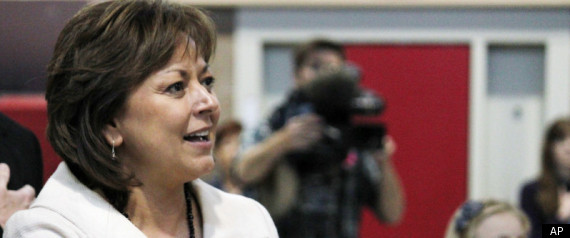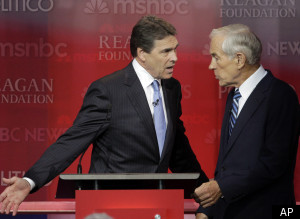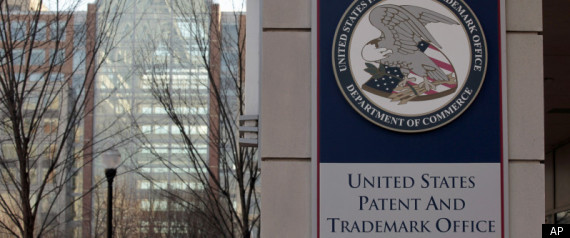City attempts to block Mass Meeting to Stop Ford’s Cuts; Meeting to go ahead!
In a blatantly anti-democratic move that smacks of Rob Ford’s authoritarianism, Toronto City is attempting to stop the Mass Meeting to Stop Ford’s Cuts from taking place. The city is shutting down programming at Dufferin Grove Park, where the meeting is scheduled from 12pm to 5pm on Saturday, September 10. Organizers from the Toronto Stop the Cuts Network say they are expecting thousands of residents to attend, to write a Toronto Declaration, ‘a vision for the Toronto people need and deserve’.
The city has cancelled all programming at Dufferin Grove Park for the day. There will be none of the usual services at this busy park on a Saturday – no gardening, no food cart, no water around the playground. Shutting down Dufferin Grove Park is an attempt to drive a wedge between Toronto Stop the Cuts and community members who rely on park services. It is also intended to prevent park staff, unionized with CUPE local 79, from participating in or helping with this meeting.
Toronto Stop the Cuts Network is moving ahead with this meeting and urging more people to come out. Please help us spread the word!
Rob Ford has sent us a clear message: If you do not support the gutting of city services and the privatization of everything that isn’t nailed down, you have no freedoms in Ford Nation.
On September 10, 19, 26 and 27, we are going to show him what Torontonians think about millionaire bullies.
The current member committees are Parkdale Committee to Stop the Cuts with No One Is Illegal – Toronto; Toronto Stop the Cuts Committee – East End Working Group with Ontario Coalition Against Poverty; Jane Finch Action Against Poverty; South Asian Women’s Rights Organization, Davenport-Perth Stop the Cuts Committee, Barrio Nuevo and more
Toronto Stop the Cuts Network and/or our actions have been endorsed by Community Solidarity Network, Disability Action Movement Now, Aids Action Now, Latin American and Caribbean Solidarity Network, Socialist Action / Ligue pour l’Action socialiste, Common Cause – Toronto, Youth for Socialist Action, CUPE 4308, CUPE Toronto District Council, CUPE 1281, Public Services Alliance of Canada – Ontario region, Continuing Education Student Association at Ryerson, Health for All, Women United Against Imperialism (WUAI), Teach2Learn, Perth County Coalition Against Poverty, Toronto Civic Employees Union Local 416 of the Canadian Union of Public Employees (CUPE), OPIRG York, Student Christian Movement Toronto, the Ontario Council of Hospital Unions (OCHU) and the Public Health Social Justice Collective, PARC, CUPE Ontario, Greater Toronto Worker’s Assembly, Youth for Socialist Action, Socialist Action, Coalition Against Psychiatric Assault, New Socialist, Ontario Coaltion Against Poverty, No One Is Illegal Toronto, Jane Finch Action Against Poverty, Barrio Nuevo, Ontario Coalition of Health Unions, and Social Justice Committee of the Graduate Students Union of the University of Toronto.
Origin
Source: Toronto Stop the Cuts
In a blatantly anti-democratic move that smacks of Rob Ford’s authoritarianism, Toronto City is attempting to stop the Mass Meeting to Stop Ford’s Cuts from taking place. The city is shutting down programming at Dufferin Grove Park, where the meeting is scheduled from 12pm to 5pm on Saturday, September 10. Organizers from the Toronto Stop the Cuts Network say they are expecting thousands of residents to attend, to write a Toronto Declaration, ‘a vision for the Toronto people need and deserve’.
See original details here: http://www.facebook.com/event.php?eid=104686749631378 and http://www.torontostopthecuts.com/?p=403
The city has cancelled all programming at Dufferin Grove Park for the day. There will be none of the usual services at this busy park on a Saturday – no gardening, no food cart, no water around the playground. Shutting down Dufferin Grove Park is an attempt to drive a wedge between Toronto Stop the Cuts and community members who rely on park services. It is also intended to prevent park staff, unionized with CUPE local 79, from participating in or helping with this meeting.
Toronto Stop the Cuts Network is moving ahead with this meeting and urging more people to come out. Please help us spread the word!
Rob Ford has sent us a clear message: If you do not support the gutting of city services and the privatization of everything that isn’t nailed down, you have no freedoms in Ford Nation.
On September 10, 19, 26 and 27, we are going to show him what Torontonians think about millionaire bullies.
Please join our facebook page at www.fb.com/stopthecuts and our email list through www.torontostopthecuts.com (bottom right) to hear about how.
The current member committees are Parkdale Committee to Stop the Cuts with No One Is Illegal – Toronto; Toronto Stop the Cuts Committee – East End Working Group with Ontario Coalition Against Poverty; Jane Finch Action Against Poverty; South Asian Women’s Rights Organization, Davenport-Perth Stop the Cuts Committee, Barrio Nuevo and more
Toronto Stop the Cuts Network and/or our actions have been endorsed by Community Solidarity Network, Disability Action Movement Now, Aids Action Now, Latin American and Caribbean Solidarity Network, Socialist Action / Ligue pour l’Action socialiste, Common Cause – Toronto, Youth for Socialist Action, CUPE 4308, CUPE Toronto District Council, CUPE 1281, Public Services Alliance of Canada – Ontario region, Continuing Education Student Association at Ryerson, Health for All, Women United Against Imperialism (WUAI), Teach2Learn, Perth County Coalition Against Poverty, Toronto Civic Employees Union Local 416 of the Canadian Union of Public Employees (CUPE), OPIRG York, Student Christian Movement Toronto, the Ontario Council of Hospital Unions (OCHU) and the Public Health Social Justice Collective, PARC, CUPE Ontario, Greater Toronto Worker’s Assembly, Youth for Socialist Action, Socialist Action, Coalition Against Psychiatric Assault, New Socialist, Ontario Coaltion Against Poverty, No One Is Illegal Toronto, Jane Finch Action Against Poverty, Barrio Nuevo, Ontario Coalition of Health Unions, and Social Justice Committee of the Graduate Students Union of the University of Toronto.
Origin
Source: Toronto Stop the Cuts














